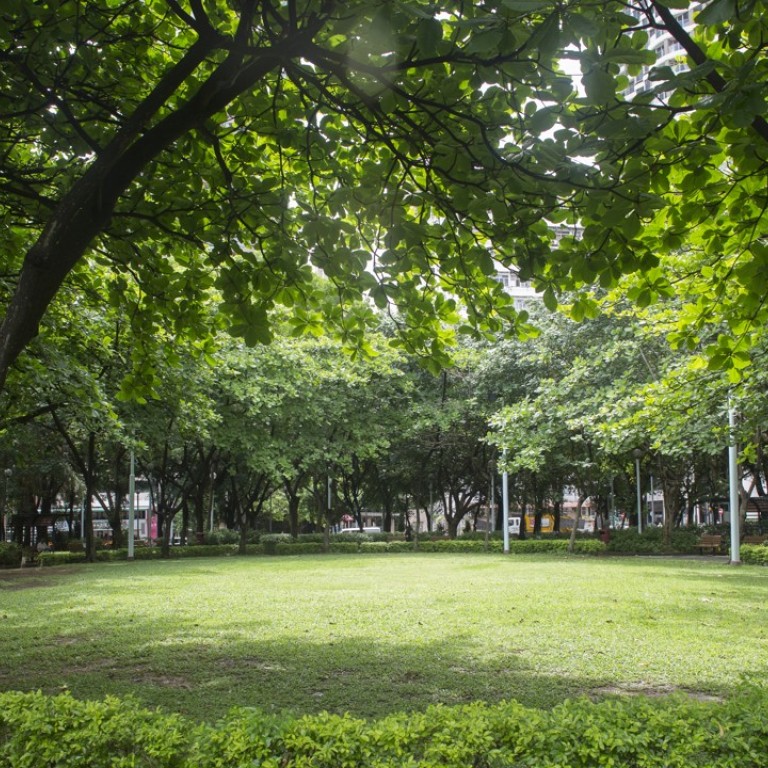
Letters to the Editor, May 10, 2017
Kennedy Town residents want park preserved
Kennedy Town residents want the Town Planning Board to reject the plan to demolish Cadogan Street Temporary Garden.
The Alliance for Protecting Cadogan Park proposes a solution for present and future residents to enjoy the park with immediate community development. This will include enhancing transport and establishing community facilities, and housing construction, with minimum disturbance caused by the soil decontamination project.
The park was established in October 1998 with 196 trees, including four fruiting incense trees which are under threat of illegal logging throughout Hong Kong. This unique park comprising a central grass field surrounded by mature trees is used a lot by residents of all ages, schoolchildren, domestic helpers and pets. Besides conservation of urban biodiversity, the park provides ecological and environmental functions such as alleviation of pollution, and reduction of urban heat and greenhouse gases in this Kennedy Town and Mount Davis outline zoning plan.
The government proposed demolishing the park without compensation, killing off all the trees and performing soil decontamination with 40 per cent of the site requiring digging and increasing emission of air pollutants such as lead, for at least seven years. The government fails to realise that natural remediation (bioremediation), especially phytoremediation and weathering, has occurred to spontaneously remove and reduce pollution levels.
The government’s decontamination plan, based on a 16-year old pollutant level, is scientifically improper, and thus incorrect when it comes to estimating costs. Any decontamination process must consider environmental conditions and technological advancement. Outdated techniques do not protect the local community to international standards. The government has to provide a safe living environment.
Hong Kong Planning Standards and Guidelines state the open space assigned to a resident is two square metres. In Kennedy Town, it is only 0.83 square metres per resident. The government’s plan to demolish the park will further adversely deprive the community of open space for more than seven years.
The proposed waterfront promenade to be built at least eight years later will not provide local residents with sufficient open space. The government should revise the outline zoning plan, given alternatives that would maintain the planned number of private and public housing units, preserve the park and promenade, and build new community facilities to ensure smart and sustainable development.
Benjamin Mok Kun-ki, Alliance for Protecting Cadogan Park ([email protected])
Place ceiling on prices of some necessities
I agree with those who argue that the new statutory minimum wage, raised by HK$2, will not help the poor, as prices will also go up.
It would have been better for the government to impose limits on the prices of some daily necessities. This would have enabled people to buy more food. Even with this new rate, there will be some items of food that will be too expensive for people on low incomes, and this means that some children will not get a balanced diet.
Having a ceiling on some prices can help the poor in the long term. The government should also be looking at other policies to help tackle the city’s serious poverty problems.
Rainbow Or, Tseung Kwan O
Education key to higher blood donation rate
The pace of life in Hong Kong is increasing and this is leading to poor eating habits.
Often people are in such a rush that they choose to eat fast food, and with heavy workloads may not get enough sleep. If they are in poor health, the quality of their blood may not be good enough to donate.
There is more demand for blood because of our ageing population, but the supply has dropped, because fewer youngsters are willing donate.
The government needs to do more to educate people and raise their level of awareness about the importance of donating blood, through exhibitions and advertising.
Hopefully this can help hospitals tide over the shortage. With more people donating blood, supplies will start increasing again and there will be enough for all the needs of the Hospital Authority. It is particuarly important to raise students’ levels of awareness, so that future supplies are secured.
Wong Cheuk-ling, Kowloon Tong
Filibusters can hurt people’s livelihoods
Filibuster has been used by some lawmakers to stall the progress of a bill or to stop it from getting passed. This tactic can delay legislation that could have a positive impact on people’s livelihoods.
A recent example was the failure of the Finance Committee to vote on the HK$6 billion funding for Hong Kong’s subscription to shares in the Asian Infrastructure Investment Bank. Various delaying tactics were employed, and I felt there was no point to any of the arguments. The anti-establishment camp was opposing subscribing to the shares of the Beijing-led bank without giving any sound reasons at all.
Common sense should have told them that this bank represents a significant economic development for China. It is believed it will be good for the nation’s people.
Under “one country, two systems”, Hong Kong is a city in China. It would surely benefit from being involved in the “Belt and Road” initiative. It could serve as the country’s offshore financial hub.
Political parties have long exploited filibusters simply in their own interests. But they should not be doing this at the expense of citizens’ livelihoods.
I urge our lawmakers not to overuse filibustering.
The government should also adopt measures which impose time limits on filibusters, so that important bills can get passed.
Randy Lee, Ma On Shan

